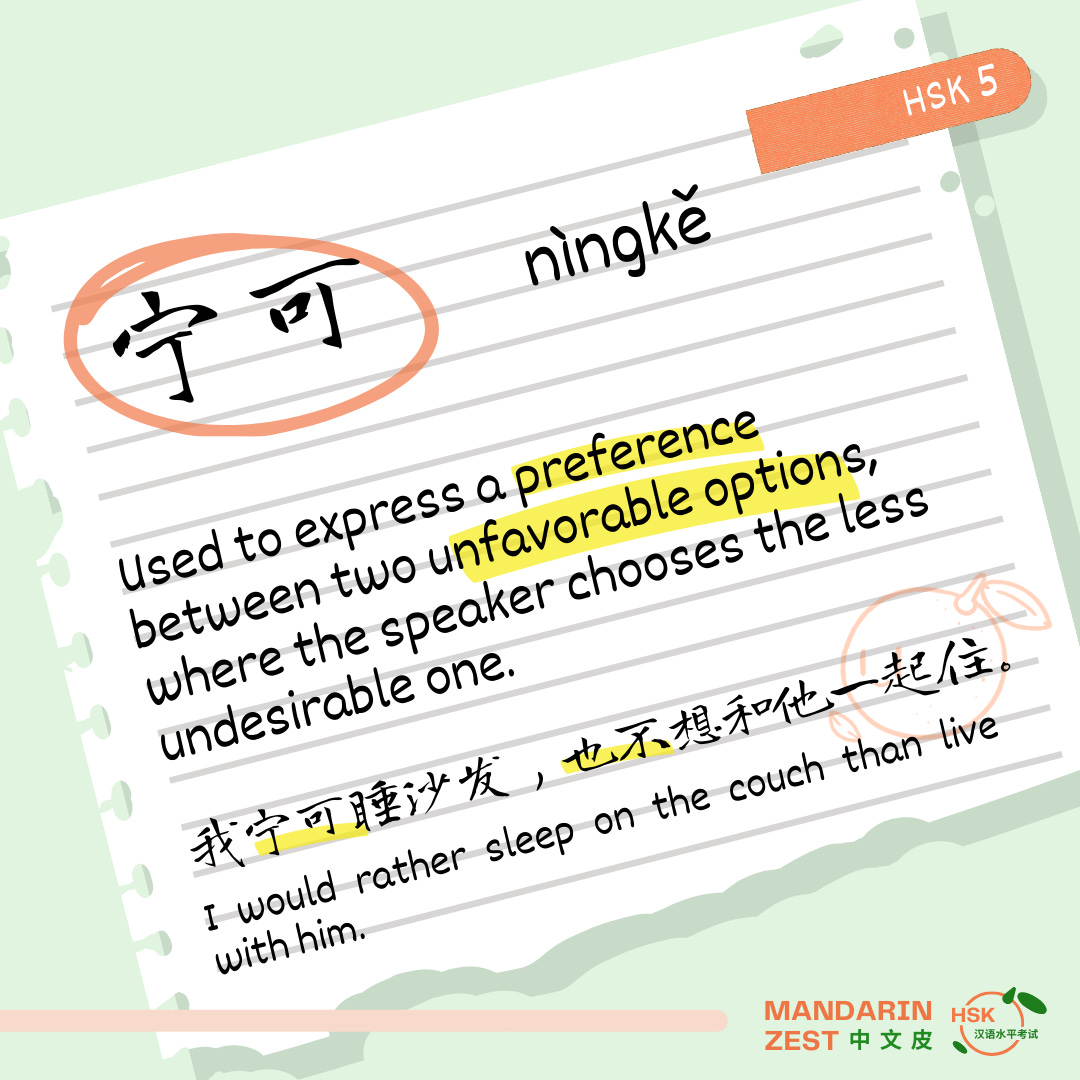宁可 (nìngkě) is used to express a preference between two unfavorable options, where the speaker chooses the less undesirable one. It translates to "would rather... than..." in English.
Structure:
宁可 + [less unfavorable option] + 也不 + [most unfavorable option]
Sample Sentences
我宁可加班,也不愿意失去这个工作。I would rather work overtime than lose this job.
我宁可睡沙发,也不想和他一起住。I would rather sleep on the couch than live with him.
她宁可放弃这个机会,也不愿意牺牲家庭时间。She would rather give up this opportunity than sacrifice time with her family.
In a Text
最近,公司决定延长工作时间。很多同事都很生气,因为这样他们就没有时间陪家人了。小王说,他宁可辞职,也不愿意放弃周末的自由时间。小李觉得这对他来说还可以接受,因为他宁可加班,也不想冒险找新工作。
但是不是所有人都有这样的选择。小张的情况最困难。他宁可每天工作到深夜,也不敢让父母知道他遇到了经济困难。他觉得这样至少能给家人一个安心的生活。
大家都在努力做出选择,即使这些选择并不容易。
Recently, the company decided to extend working hours. Many colleagues are upset because this means they won’t have time to spend with their families. Xiao Wang said he would rather quit his job than give up his free weekends. Xiao Li thinks it’s acceptable for him because he would rather work overtime than take the risk of finding a new job.
But not everyone has such choices. Xiao Zhang’s situation is the most difficult. He would rather work late into the night every day than let his parents know he’s facing financial difficulties. He feels that at least this way, he can provide his family with a sense of security.
Everyone is trying to make their own choices, even though these choices are not easy.






